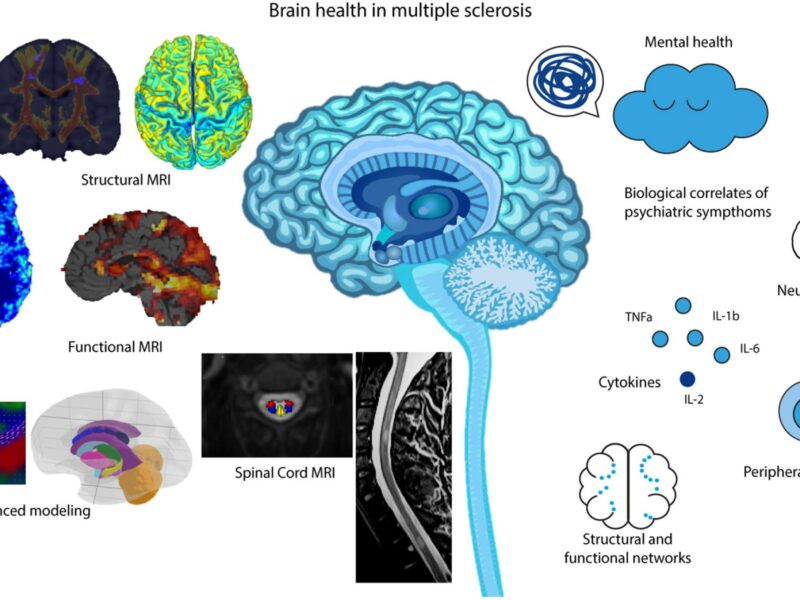Multiple sclerosis (MS) is a chronic autoimmune disease that affects the central nervous system (CNS), leading to inflammation, demyelination, and neurological dysfunction. This debilitating condition manifests through a wide range of symptoms and can have a profound impact on the lives of those affected.
In this article, we will delve into the intricacies of MS, exploring its underlying mechanisms, clinical manifestations, diagnostic approaches, and management strategies to provide a comprehensive understanding of this complex disorder.
Introduction to Multiple Sclerosis
Multiple sclerosis is a chronic and progressive autoimmune disorder characterized by inflammation, demyelination, and neurodegeneration within the central nervous system.
The exact cause of MS remains unclear, but it is believed to involve a complex interplay of genetic, environmental, and immunological factors. MS affects approximately 2.8 million people worldwide and typically manifests in young adults between the ages of 20 and 40, although it can occur at any age.
Pathophysiology of Multiple Sclerosis
The pathophysiology of MS involves an aberrant immune response targeting the myelin sheath, a protective covering that surrounds nerve fibres in the CNS. This immune-mediated attack leads to inflammation and damage to the myelin, disrupting the transmission of nerve impulses and causing neurological dysfunction.
Additionally, MS can result in axonal injury and loss, further contributing to neurological impairment and disability progression over time.
Clinical Manifestations of Multiple Sclerosis
Multiple sclerosis can present with a wide range of symptoms, which vary in severity and duration among individuals. Common clinical manifestations of MS include:
- Motor Symptoms: Motor symptoms may include weakness, spasticity, tremors, coordination difficulties, and muscle stiffness. These symptoms can affect mobility, balance, and fine motor skills, leading to difficulties with walking, grasping objects, and performing activities of daily living.
- Sensory Symptoms: Sensory symptoms may include numbness, tingling, burning sensations, and altered sensation in the extremities or other parts of the body. Sensory disturbances can affect perception, proprioception, and tactile sensitivity, impacting the individual’s ability to detect and respond to sensory stimuli.
- Visual Symptoms: Visual symptoms are common in MS and may include optic neuritis, blurred vision, double vision (diplopia), and eye pain. Visual impairment can result from inflammation of the optic nerve (optic neuritis) or damage to the visual pathways within the CNS, leading to visual disturbances and vision loss.
- Cognitive Symptoms: Cognitive symptoms may include difficulties with memory, attention, concentration, information processing speed, and executive function. Cognitive impairment can affect various domains of cognitive functioning, leading to problems with learning, problem-solving, and decision-making.
- Fatigue: Fatigue is a pervasive and debilitating symptom of MS, affecting up to 80% of individuals with the condition. MS-related fatigue is often described as overwhelming and persistent, significantly impacting daily functioning, productivity, and quality of life.
Diagnosis of Multiple Sclerosis
The diagnosis of MS is based on a combination of clinical evaluation, neuroimaging studies, and laboratory tests. Diagnostic criteria for MS include:
- Clinical Presentation: The presence of symptoms suggestive of MS, such as neurological deficits affecting different areas of the CNS, occurring at different times (i.e., dissemination in space and time).
- Magnetic Resonance Imaging (MRI): Neuroimaging studies, particularly MRI of the brain and spinal cord, can reveal characteristic lesions consistent with demyelination and inflammation in the CNS. MRI findings, along with clinical symptoms, aid in the diagnosis and classification of MS.
- Cerebrospinal Fluid (CSF) Analysis: Examination of cerebrospinal fluid obtained via lumbar puncture may reveal elevated levels of immunoglobulin G (IgG) and oligoclonal bands, indicative of an inflammatory process within the CNS.
- Evoked Potentials: Evoked potential tests, such as visual evoked potentials (VEP) and somatosensory evoked potentials (SSEP), assess the conduction of nerve impulses along sensory pathways and can detect abnormalities suggestive of demyelination in MS.
Management of Multiple Sclerosis

The management of MS aims to reduce inflammation, alleviate symptoms, prevent relapses, and slow disease progression. Treatment strategies for MS may include:
- Disease-Modifying Therapies (DMTs): Disease-modifying therapies, such as interferons, glatiramer acetate, and monoclonal antibodies, target the underlying immune response in MS to reduce inflammation and prevent relapses. These medications can help slow disease progression and delay disability accumulation in individuals with MS.
- Symptomatic Management: Symptomatic management focuses on alleviating specific symptoms of MS to improve quality of life and functional outcomes. Medications may be prescribed to manage spasticity, neuropathic pain, bladder dysfunction, and other symptoms. Physical therapy, occupational therapy, and rehabilitation programs can also help optimize mobility, function, and independence.
- Supportive Care: Supportive care plays a crucial role in managing the holistic needs of individuals with MS. This may include psychological support, counselling, and cognitive-behavioral therapy to address emotional well-being, coping strategies, and adjustment to the diagnosis. Social support networks, peer support groups, and community resources can provide additional support and encouragement for individuals living with MS and their caregivers.
- Lifestyle Modifications: Lifestyle modifications, such as regular exercise, healthy diet, stress management, and adequate rest, can help individuals with MS manage symptoms, maintain physical fitness, and enhance overall well-being. Avoiding smoking, excessive alcohol consumption and other unhealthy behaviours can also promote better health outcomes and disease management in MS.
Conclusion
Multiple sclerosis is a complex autoimmune disorder characterized by inflammation, demyelination, and neurological dysfunction within the central nervous system. This debilitating condition presents a diverse array of symptoms that can profoundly impact an individual’s quality of life and functional abilities.
Understanding the underlying mechanisms, clinical manifestations, diagnostic criteria, and management strategies for MS is essential for providing comprehensive care and support for those affected by this challenging autoimmune disorder. By unravelling the complexities of multiple sclerosis and implementing evidence-based interventions, we can improve outcomes and enhance the well-being of individuals living with MS.
Related Tags
Taiwo Olawuyi
Taiwo Olawuyi is a highly dedicated and passionate professional blogger, renowned for her ability to create captivating, informative, and engaging content in the realm of health and wellness. She holds a Bachelor's degree in Political Science from Olabisi Onabanjo University and a Master's degree in Adult Education from the prestigious University of Ibadan. Her profound passion for health and wellness, coupled with her unwavering dedication to her audience, serves as a constant source of inspiration and enlightenment for readers worldwide.










